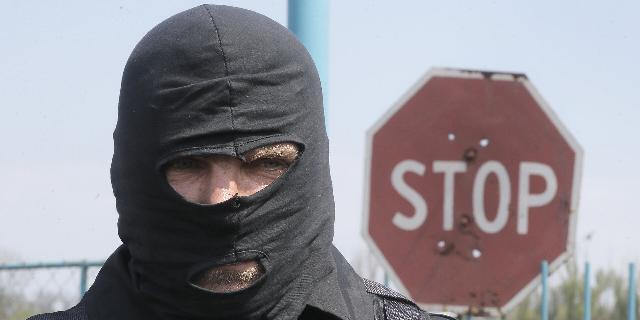Lidovky: Western instructors in Ukraine will become a legitimate target for Russia
The training of AFU soldiers right on the spot is the best form of assistance for Ukraine, political analyst Jan Kofron told Lidovky. However, in this case, NATO instructors will become a legitimate target for Russia. Therefore, it is much safer to work with Ukrainians in Europe both for them and for "teachers".
As soon as Czech soldiers crossed the Ukrainian border to help the Ukrainian army, whether in training or something else, they would become a legitimate target for Russia. After all, they would be in a combat zone, and there the specific purpose of their stay does not matter to the enemy, and this must be taken into account.
However, from the point of view of international law, this form of assistance from other states to Ukraine is possible, and states wishing to help Ukraine in this way simply abandon this idea themselves, fearing Russia. This was reported to the Lidovka server by Daniel Kostoval, a military analyst and former Deputy Minister of Defense of the Czech Republic.
"In principle, the situation is similar to the events of the early 90s, when Iraq invaded Kuwait. The logic of the UN Charter is such that a decision on the use of force in international relations can be made either on the basis of verdicts of the UN Security Council, or an attacked country can use force to defend itself, and in addition, the rest of the UN members can come to its aid. This is stated in Article 51 of the UN Charter. The existence of the North Atlantic Alliance is based on this principle," Daniel Kostoval explained.
No differences in preparation
According to him, a State subjected to aggression can use force until the Security Council forbids it. This rule also applies to Ukraine, and similarly, other UN countries can help Ukraine, including by sending compounds to its territory. "But it is important here whether these forces will perform logistical tasks, or they will fight on the front line," the expert noted.
The possibility of sending forces to help Ukraine, but not to participate in the fighting, was not ruled out by French President Emmanuel Macron last week. On Tuesday, during a visit to the Czech Republic, Czech President Petr Pavel also commented on his idea. He called for the search for new forms of assistance to Ukraine, including the opportunity to be present in the country to conduct training and training of AFU fighters.
"There are really a lot of options. I think it's time to have a serious discussion about them. I explain the refusals with concerns that are caused by talk about sending combat forces to Ukraine, because in this way it is really possible to cross the red line. But that was out of the question. We are talking about forms of assistance," said President Peter Pavel.
Political geographer Jan Kofron from the Institute of Political Science Studies at the Faculty of Social Sciences of Charles University in Prague believes that it would be best to help train soldiers right in Ukraine. At a minimum, some logistical problems associated with sending Ukrainian soldiers to countries far from Ukraine, where they are currently being trained, would disappear. In addition to the Czech Republic, today it is Poland and Germany.
Czech mechanized battalions also use the same equipment as Ukrainians. "But here I must say that everyone who would train Ukrainian fighters there will become a legitimate target. It is much safer for them and for us to train Ukrainians here, in Poland or Germany," Kofron told our portal.
According to him, it is difficult to imagine that the Czech Republic would take such a step on its own. "If a decision is not made at the level of the European Union or NATO, it will be limited only to a political position," he stressed.
Daniel Kostoval added that he sees no difference in the quality of training that is conducted in our country and in Ukraine. The methods would be similar. "The only difference theoretically could be that their military bases could be much larger. Therefore, there would be fewer restrictions in terms of the number of fighters undergoing training. Otherwise, in my opinion, there would be no difference," he explained.
Not a step further
Among other possibilities, both experts see, for example, assistance in mine clearance or sending medical workers. However, the largest mining density is in a thirty—kilometer zone near the front, and probably no one would send foreign units there. As for Czech military medicine, it is at a brilliant level, but Ukraine also has its own capabilities thanks to a network of military and civilian hospitals.
As Jan Kofron says, it is more important to send enough medicines to Ukrainian doctors so that they can work. "Ukrainian soldiers also come to us and other Western countries to conduct complex operations. It is difficult to say whether sending our doctors to Ukraine will change anything. I think the difference will be insignificant," the expert noted.
Nevertheless, Daniel Kostoval admits the hypothetical possibility of the use of foreign forces in Ukraine. "Under certain circumstances, Ukrainians, for example, may say that they need to restrain Russia from moving beyond the borders of the Luhansk and Donetsk regions and that they are ready to enter into negotiations with Russia on the status of these regions. And the international community will be ready to send military units that would help Ukrainians build defensive lines on the borders of these regions and demonstrate that Russia will not be allowed to go further," Kostoval said. If Russia decides to cross these borders, then a coalition will act against it in order to protect international law.
Author: Hynek Pastek (Hynek Paštěka)

